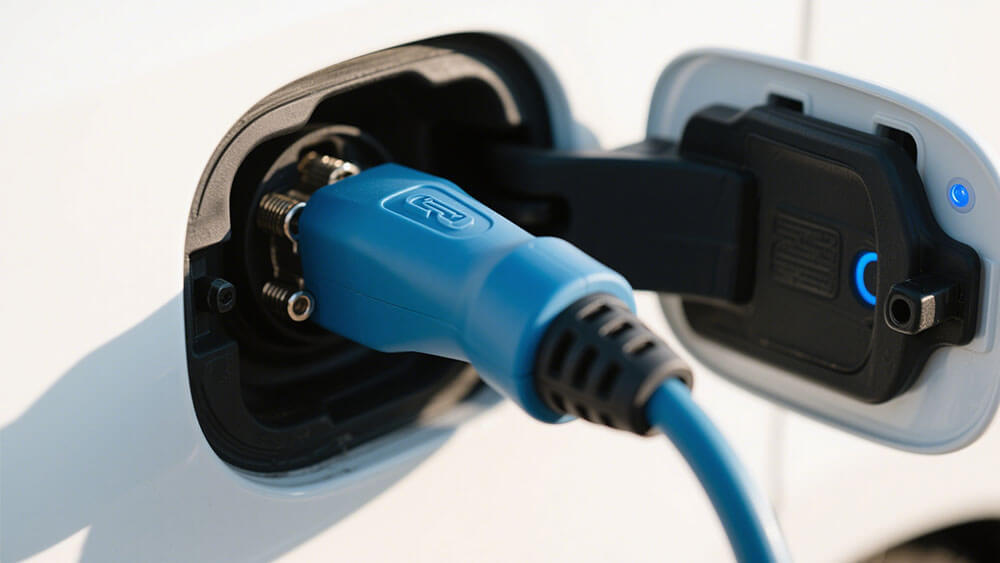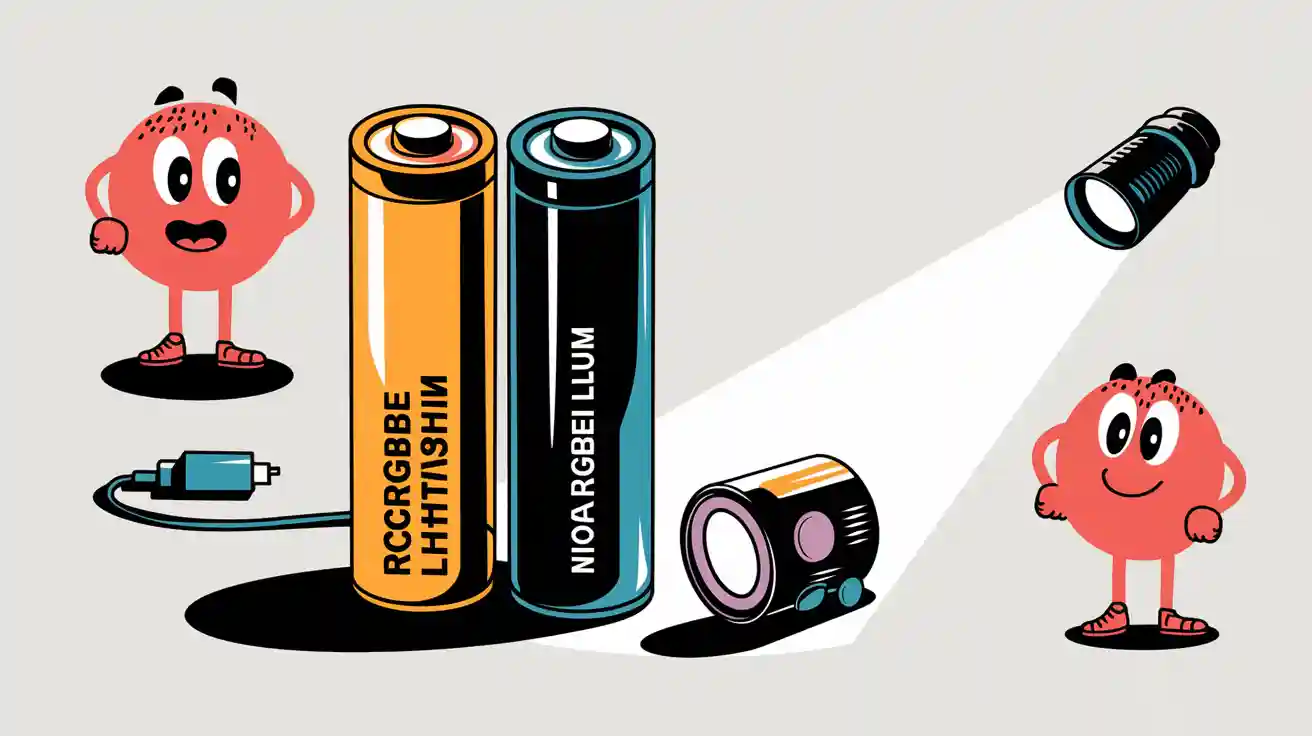Contents

RoHS Battery certification plays a vital role in ensuring that lithium batteries meet the requirements of the restriction of hazardous substances directive. By adhering to the RoHS directive, you minimize environmental risks and improve product safety. RoHS Battery compliant lithium batteries reduce hazardous waste, aligning with global environmental safety goals. Manufacturers rely on testing and quality assurance to verify compliance with testing standards, ensuring that RoHS Battery products meet international regulations.
Key Takeaways
RoHS certification makes sure lithium batteries are safe and eco-friendly. It helps cut down harmful waste and makes products safer.
Companies can sell their products worldwide by following RoHS rules. This improves their image and saves them from big fines.
People get safer and better batteries with RoHS certification. These batteries also help keep the planet cleaner.
Part 1: Understanding RoHS Certification

1.1 What is the Restriction of Hazardous Substances Directive?
The Restriction of Hazardous Substances (RoHS) Directive, formally known as RoHS 2002/95/EC, was adopted in February 2003 and became effective on July 1, 2006. Its primary goal is to limit the use of hazardous chemicals in electrical and electronic equipment, including lithium batteries. This directive restricts ten substances, such as lead, cadmium, mercury, and hexavalent chromium, which pose significant risks to human health and the environment.
Key Element | Description |
|---|---|
Directive Name | Restriction of Hazardous Substances Directive (RoHS) 2002/95/EC |
Adoption Date | February 2003 |
Effective Date | July 1, 2006 |
Purpose | To limit hazardous chemicals in electronics |
Restricted Substances | Lead, cadmium, mercury, hexavalent chromium, PBB, PBDE, DEHP, BBP, DBP, DIBP |
Related Directive | Waste Electrical and Electronic Equipment Directive (WEEE) 2002/96/EC |
Since its inception, RoHS has evolved to address emerging challenges in the electronics industry. Compliance with this directive is crucial for manufacturers aiming to reduce environmental hazards and meet global regulatory standards.
1.2 Key Requirements for RoHS Battery Compliance
To achieve RoHS compliance, lithium batteries must adhere to strict limits on hazardous substances. For instance, lead concentrations must not exceed 1000 ppm, while cadmium and mercury levels are capped at 100 ppm. The table below outlines the maximum allowable concentrations for each restricted substance:
Hazardous Substance | Maximum Allowable Concentration |
|---|---|
Lead (Pb) | < 1000 ppm |
Mercury (Hg) | < 100 ppm |
Cadmium (Cd) | < 100 ppm |
Hexavalent Chromium (CrVI) | < 1000 ppm |
Polybrominated Biphenyls (PBB) | < 1000 ppm |
Polybrominated Diphenyl Ethers (PBDE) | < 1000 ppm |
Bis(2-Ethylhexyl) phthalate (DEHP) | < 1000 ppm |
Benzyl butyl phthalate (BBP) | < 1000 ppm |
Dibutyl phthalate (DBP) | < 1000 ppm |
Diisobutyl phthalate (DIBP) | < 1000 ppm |
Manufacturers must implement rigorous testing and quality assurance processes to ensure compliance. These measures not only enhance product safety but also facilitate access to international markets.
1.3 Identifying RoHS-Compliant Batteries
Identifying RoHS-compliant batteries involves a systematic approach. Manufacturers must first identify restricted substances in their products. Testing is then conducted to determine whether these substances exceed allowable limits. If violations are found, hazardous materials must be replaced with safer alternatives. Third-party certification bodies often verify compliance to ensure adherence to RoHS standards.
Steps to identify RoHS-compliant batteries include:
Identifying restricted substances in the product.
Conducting tests to measure substance concentrations.
Replacing hazardous materials with non-toxic alternatives.
Verifying compliance through third-party certification.
Obtaining a RoHS certificate upon successful testing.
By following these steps, manufacturers can ensure their lithium batteries meet RoHS requirements, enhancing their credibility and marketability. For customized battery solutions that comply with RoHS standards, visit Large Power.
Part 2: Benefits of RoHS Certification for Lithium Batteries

2.1 Advantages for Manufacturers: Compliance and Market Access
RoHS certification offers significant advantages for manufacturers of lithium batteries. By ensuring compliance with global regulations, you can position your products for success in international markets. Meeting RoHS standards eliminates barriers that might otherwise restrict your ability to sell in regions with strict environmental laws.
Key Benefits for Manufacturers:
Ensures your products meet regulatory requirements in multiple countries.
Facilitates global market access without encountering compliance-related obstacles.
Compliance with mandatory restrictions on hazardous substances in electronic equipment.
Avoidance of costly regulatory penalties or product recalls.
Improved public perception and customer trust in your brand.
Enhanced product marketability due to adherence to environmental standards.
A competitive edge over non-certified products in the marketplace.
Evidence Type | Description |
|---|---|
Regulatory Impact | Compliance with RoHS drives innovation and influences material choices, leading to market growth. |
Market Dynamics | RoHS compliance affects product availability and market entry, impacting revenue for manufacturers. |
R&D Costs | A 2023 study indicated a 12-15% increase in R&D costs due to RoHS compliance, fostering eco-friendly innovations. |
By aligning with RoHS, you not only meet legal requirements but also demonstrate a commitment to sustainability. This approach can significantly enhance your reputation and open doors to lucrative markets.
2.2 Consumer Benefits: Safety and Reliability of RoHS Batteries
For consumers, the benefits of using RoHS-certified lithium batteries are clear. These batteries prioritize safety and reliability by minimizing the presence of hazardous substances. As a result, you can trust that the products you use are less likely to pose health risks or environmental hazards.
Why Consumers Prefer RoHS Batteries:
Reduced exposure to harmful chemicals like lead and cadmium.
Improved product reliability due to stringent manufacturing standards.
Assurance of compliance with global safety regulations.
Tip: When purchasing batteries for consumer electronics, always look for RoHS certification. It guarantees that the product meets high safety and environmental standards.
RoHS batteries also contribute to reducing electronic waste, a growing concern in today’s world. By choosing certified products, you play a role in promoting a safer and more sustainable environment.
2.3 Environmental Impact: Reducing Hazardous Waste in Battery Production
The environmental impact of RoHS certification cannot be overstated. By restricting the use of hazardous substances, RoHS helps reduce the ecological footprint of battery production. This initiative aligns with global efforts to combat pollution and promote sustainability.
Covers hazardous substances that harm humans and the environment.
Enhances the economic viability of recycling waste products.
Reduces health risks for workers in recycling facilities.
Directive | Description |
|---|---|
RoHS | Bans or restricts the use of hazardous substances in electrical and electronic equipment, effective from July 1, 2006. |
WEEE | Regulates the reuse, recycling, and recovery of waste electrical and electronic equipment to prevent disposal. |
Additional Environmental Benefits:
Commitment to sustainability through reduced toxic waste.
Increased reliance on renewable energy sources, such as solar power.
Active participation in recycling and waste management programs.
By adopting RoHS-certified lithium batteries, manufacturers and consumers alike contribute to a cleaner, greener planet. This certification not only addresses immediate environmental concerns but also supports long-term sustainability goals. For more insights into sustainable practices, visit Sustainability at Large Power.
Part 3: Global Impact of RoHS Certification

3.1 Role of RoHS in International Trade and Export
RoHS certification plays a pivotal role in facilitating international trade and export of lithium batteries. By adhering to RoHS standards, manufacturers ensure their products meet the environmental and safety regulations of multiple countries. This compliance eliminates trade barriers, enabling seamless entry into global markets. For instance, the European Union mandates RoHS compliance for all electronic imports, including lithium batteries. Without certification, manufacturers risk losing access to these lucrative markets.
Exporting RoHS-compliant batteries also enhances your brand’s reputation. Buyers and distributors prefer products that align with global environmental standards. This preference not only boosts sales but also fosters long-term partnerships. Moreover, RoHS certification reduces the risk of penalties or product recalls, which can severely impact your business operations and financial stability.
Tip: To maximize your export potential, ensure your lithium batteries meet RoHS requirements and obtain third-party certification.
3.2 Aligning Lithium Battery Standards with Global Regulations
Aligning lithium battery standards with global regulations is essential for maintaining consistency and safety across markets. RoHS certification serves as a benchmark, ensuring that batteries meet stringent environmental and safety criteria. Various international standards complement RoHS, such as the UL standards, which focus on specific safety aspects of lithium batteries:
UL Standard | Description |
|---|---|
UL 1642 | Safety requirements for lithium batteries, testing their ability to withstand hazardous conditions. |
UL 2054 | Addresses safety aspects for household and commercial lithium battery applications. |
UL 4200A | Outlines requirements for high-performance secondary lithium batteries used in electric vehicles. |
UL 60086-4 | Specifies safety and performance requirements for primary lithium batteries in consumer electronics. |
By aligning with these standards, you ensure your products are not only RoHS-compliant but also meet additional safety and performance benchmarks. This alignment simplifies the certification process and enhances your product’s marketability.
3.3 Contribution to Sustainability and Circular Economy Goals
RoHS certification significantly contributes to global sustainability and circular economy goals. By restricting hazardous substances, RoHS minimizes environmental pollution and promotes safer recycling practices. This initiative aligns with the principles of a circular economy, where resources are reused and waste is minimized.
For lithium batteries, RoHS compliance encourages the use of eco-friendly materials and innovative recycling technologies. These practices reduce the environmental footprint of battery production and disposal. Additionally, RoHS-certified batteries support renewable energy systems, such as solar and wind power storage, further advancing sustainability efforts.
Note: By choosing RoHS-compliant batteries, you actively participate in creating a cleaner and more sustainable future. Learn more about sustainable practices here.
RoHS certification ensures lithium batteries meet global standards, reducing environmental risks and enhancing sustainability. You gain access to international markets, improve product safety, and support cleaner manufacturing practices. As demand for lithium batteries grows, RoHS compliance drives innovation and positions your business as a leader in sustainable development.
Tip: Explore customized battery solutions to meet RoHS standards at Large Power.
FAQ
1. How can you verify if a lithium battery is RoHS-compliant?
You can check for RoHS certification labels on the product or request documentation from the manufacturer. Third-party testing reports also confirm compliance.
2. Are RoHS-certified batteries more expensive than non-certified ones?
RoHS-certified batteries may have slightly higher costs due to compliance testing and safer materials. However, they offer better safety, reliability, and environmental benefits, making them worth the investment.
3. Does RoHS certification apply to all types of batteries?
No, RoHS certification primarily applies to batteries used in electronic devices. It excludes certain types, like automotive batteries, which follow different regulatory standards.
Tip: Always confirm the specific regulations applicable to your battery type to ensure compliance. Explore customized battery solutions to meet RoHS standards at Large Power.





